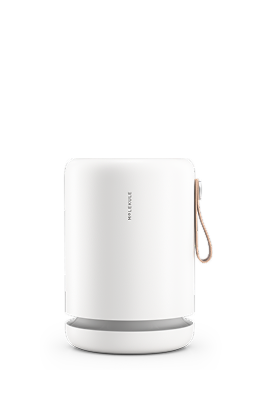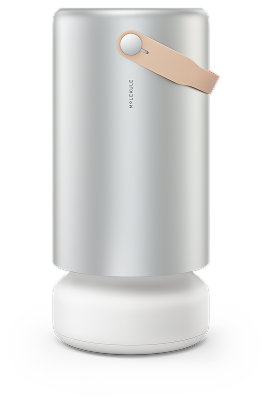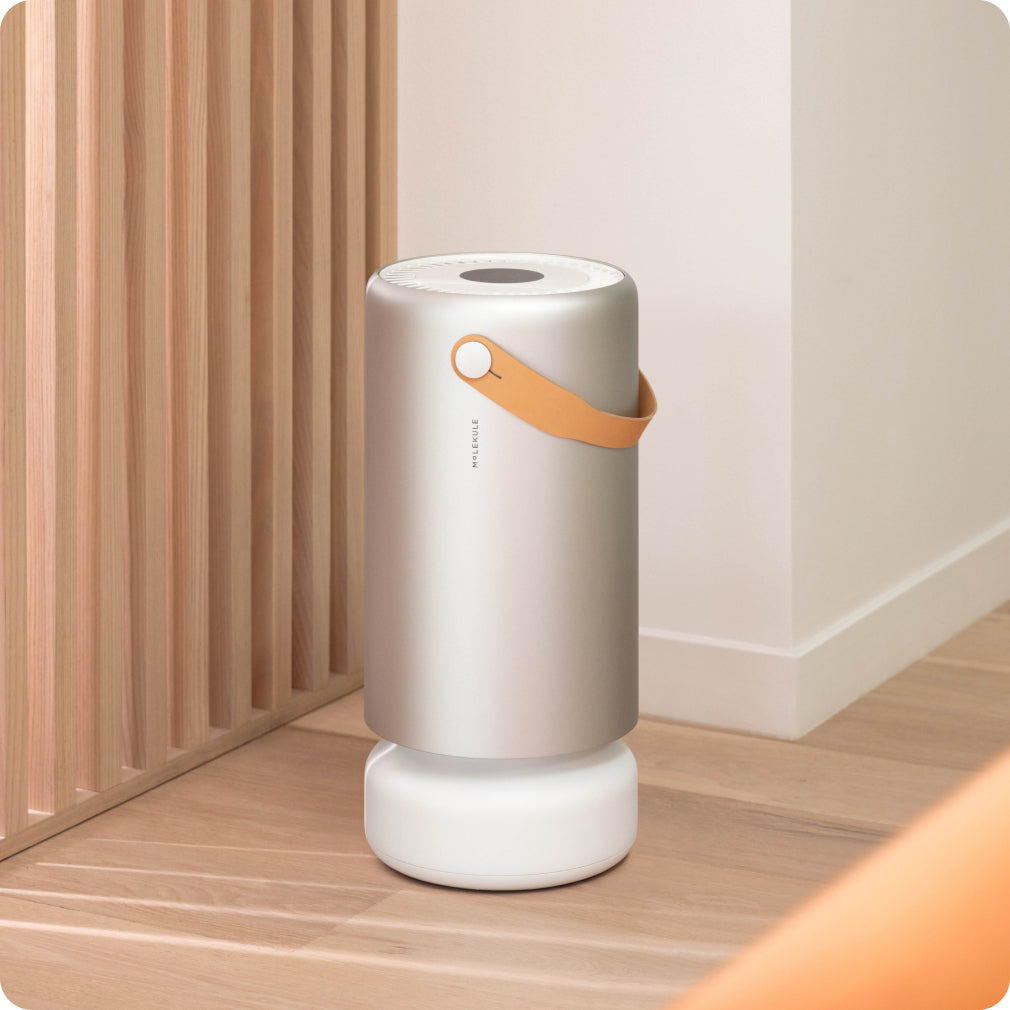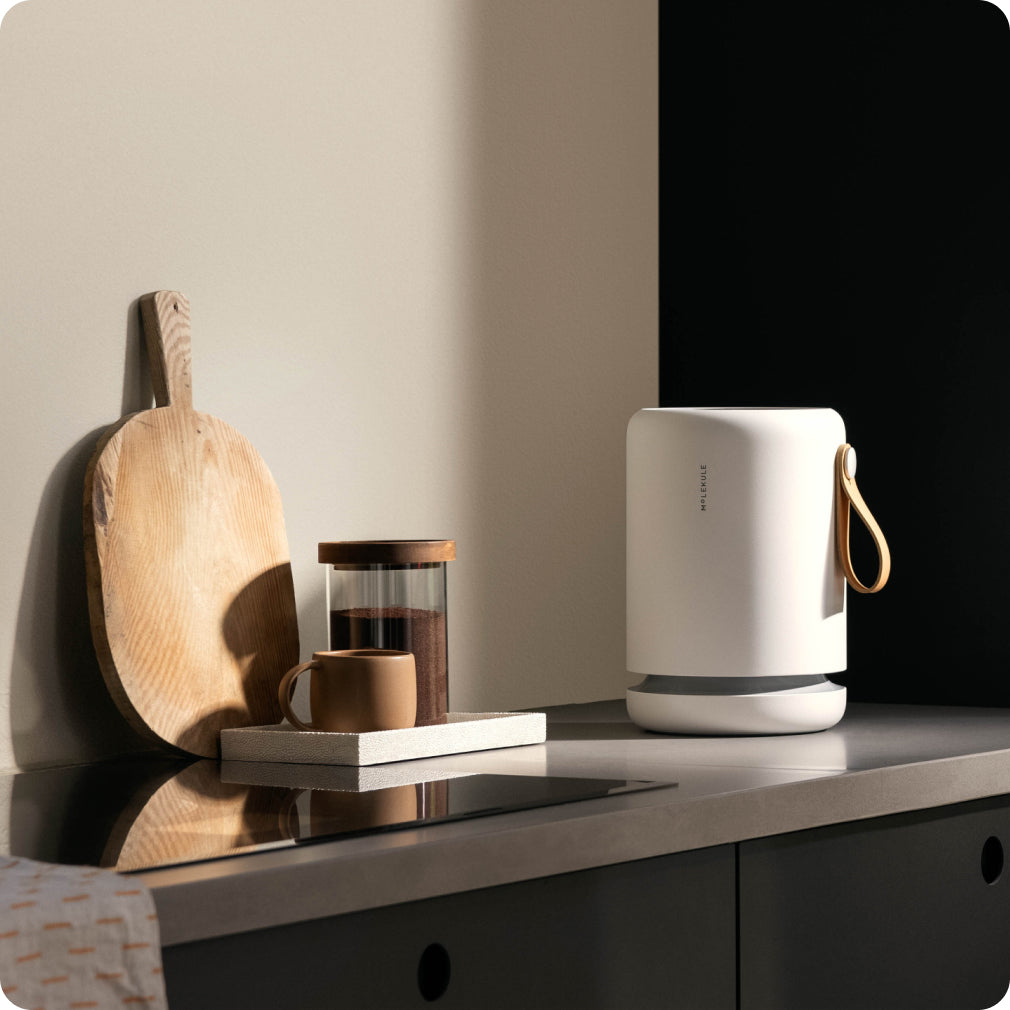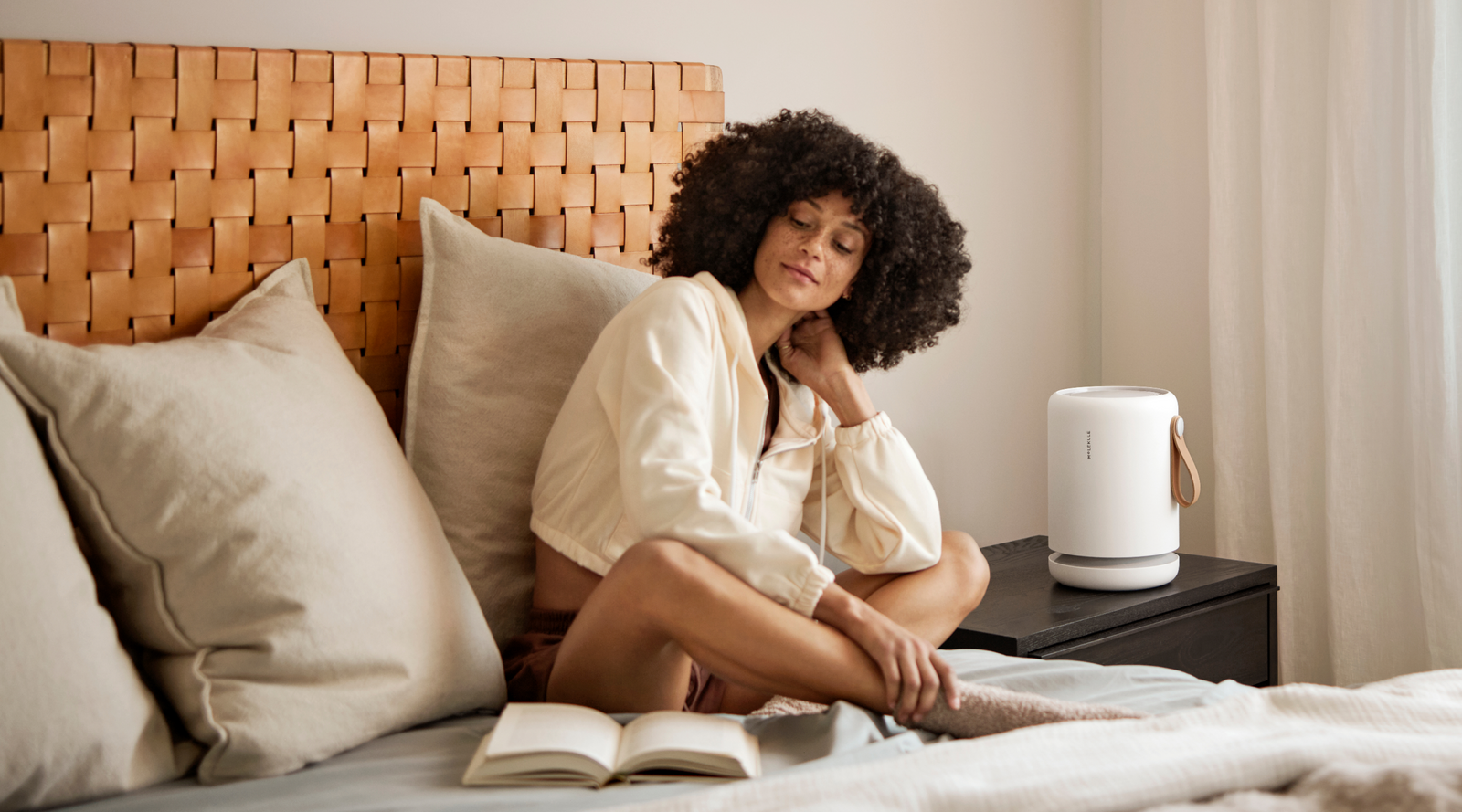Cold weather has us reaching for the lip balm, hand salve, body oil, moisturizing serums, and soothing lotions. But why does winter air dry us out so much? Relative humidity (or lack thereof) isn’t the only thing affecting the largest organ of your body. Indoor air quality in the winter can be filled with pollutants, thanks to our need to keep our windows shut to keep out the chill, as well as other hibernation essentials that leech VOCs, particulate matter, and more into the air.
Why is winter air so dry?
Winter air tends to be dry because cold air can’t hold as much moisture than warm air. When that low humidity outside cold air seeps into your home, heating systems add warmth but don’t increase the amount of moisture in your air, and can even further reduce humidity. In extremely low humidity environments, the air seeks moisture from wherever it can find it, including your nose, throat, and of course, your skin.

Air Quality's Impact on Skin Health
In spring, summer, and warm days of fall, our homes are usually more well-ventilated, either through open windows, HVAC systems, or open doors because we go outside more often when the weather is better. In winter, less ventilation means indoor pollutants, like dust, pet dander, and VOCs can accumulate and compromise your skin barrier function. Oxidative stress from these air quality factors can lead to dryness, aging, and even exacerbate conditions like eczema and acne. One study found that exposure to heated indoor air for just six hours significantly increased the appearance of pores, roughness, redness, and wrinkles. As a protective measure, the skin’s sebum production also increased, which functions to protect and moisturize skin, but can cause an oily appearance, clogged pores, and large pores.
Hydration as a defense
Since your body will start producing more sebum as a reaction to dehydrated skin, it may feel oily, but resist the urge to use anything drying. Using super hot water to wash your face and body can also strip away your natural oils, so even if it feels good, opt for lukewarm water.
Humidifiers are also a great way to reintroduce moisture into your home. As a bonus, it’ll moisten your mucus membranes which can also suffer in the winter. Finally, make sure you’re hydrated inside as well as out. Drink plenty of water and other fluids (green tea especially- those antioxidants are powerful against oxidative damage).

Your protective arsenal
If your skin’s already dry or flaky, it may be more sensitive, so look for fragrance-free, soothing products, and skip harsh exfoliants since your skin barrier may already be damaged. Here are some recommendations for ingredients to look for when shopping for skincare, and some essential items to help you keep your skin looking and feeling fresh:
Hyaluronic acid is known for its ability to hydrate and plump the skin by retaining water molecules, preventing the skin from becoming overly dry and susceptible to pollutants.
Antioxidants like vitamin C, vitamin E, resveratrol, and green tea help protect the skin from free radical damage, promoting a youthful and healthy complexion.
Niacinamide (Vitamin B3): Known for its anti-inflammatory and barrier-strengthening properties, niacinamide helps protect the skin from pollutants, reduces redness, and improves the overall texture of the skin.
Ceramides play a crucial role in maintaining the skin's barrier function, preventing moisture loss and pollutants from penetrating and causing damage.
Oats can provide gentle exfoliation and soothe irritated skin due to their anti-inflammatory properties.
Occlusives, such as oils and balms, create a protective barrier on the skin's surface, locking in moisture and promoting a smoother, more supple complexion.
Sunscreen is essential for shielding the skin from harmful UV rays, preventing premature aging and reducing the risk of skin cancer.
Lip Balm with ingredients like beeswax or coconut oil can help keep your lips moist and soft. Look for one with SPF if you’re going outside.
Air purifiers improve indoor air quality, reducing exposure to pollutants that may negatively impact the skin. And we know just the one.
Humidifiers add moisture to your indoor air. Just be sure to clean it often and use distilled water so you don’t release anything in your tap water into the air.
Armed with knowledge and protective measures, your skin can brave the season and you can defend your largest organ from unnecessary oxidative stress. If you're reading this article, drink water!
